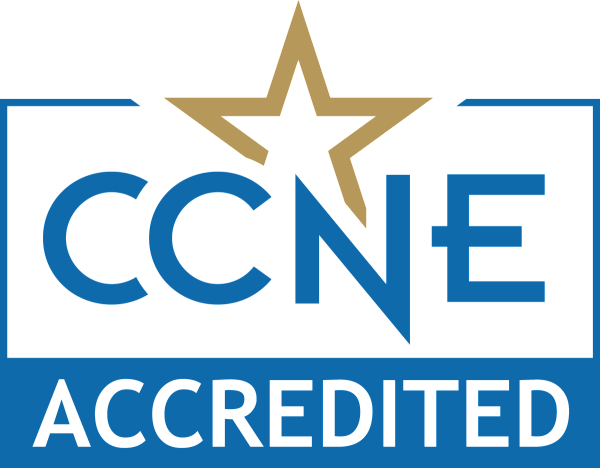Nurses do extraordinary work caring for all of us. Now, Lakeland University would like to care for you.
As the healthcare industry moves to hire registered nurses with four-year degrees, Lakeland University's RN to BSN completion program degree is offered to licensed registered nurses who have an associate degree in nursing.
As a nurse, you advocate for patients. Now, advocate for yourself with a bachelor’s degree in nursing (BSN) from Lakeland University.

*Data provided by Nurse.org (May 2023).
The baccalaureate degree program in nursing at Lakeland University is accredited by the Commission on Collegiate Nursing Education, 655 K Street NW, Suite 750, Washington, DC 20001, 202-887-6791.
Nursing Program Mission Statement
The mission of the Lakeland University Nursing Program builds on the university’s mission in its dedication to educate registered nurses by building on prior knowledge, skills, and experiences to advance the art and science of nursing. The goal of a baccalaureate graduate is to grow personally, advance with increasing competence professionally, and carry on the lifelong learning process that is important for optimal development as a practitioner in the discipline of nursing.
Nursing Program Philosophy
Lakeland University nursing faculty believe that the art and science of nursing are founded in the liberal arts and sciences. Nursing education transforms the knowledge from the liberal arts and sciences into the basis of nursing practice. This foundation, when integrated with evidence-based research and practice, provides the root of professional practice. Professional nursing practice includes an awareness of ethical standards, ability to critically think, participate in lifelong experiential learning, and development of interprofessional relationships. The Essentials: Core Competencies for Professional Nursing Education (2021) are the foundation to the curriculum for the Nursing Program, and thus essential for the practice of professional nursing. This education provides the foundation for the development of professional nursing practice, critical thinking, ethical decision-making, leadership skills, and the independent and interprofessional pursuit of high standards of health care.
The graduate of Lakeland University’s Nursing Program will integrate evidence-based research to practice in the provision of patient-centered, culturally competent, and community/population-based care. Through experience as an active member of the healthcare community, the graduate will collaborate with interprofessional teams to achieve positive patient outcomes and develop professional skills that contribute to advanced professional competence and leadership. As an active participant in the learning environment the graduate will develop an understanding of healthcare organizations/systems and the processes of healthcare policy development. As a user of patient care technology and informatics the graduate will use information technology in experiences that apply quality improvement principles in the delivery of safe, quality care.
Nursing Program Learning Outcomes
Don't have your Associate Degree In Nursing? No worries! Lakeland University also offers a BSN through a unique partnership with Moraine Park Technical College. Click here to learn more!

You already passed your first test, you are interested in applying to Lakeland and learning more about your opportunities to success!
Once your application is received, your Lakeland University admissions counselor will be in touch.
*Exceptions to the above admission criteria may be granted for students with a cumulative GPA range from 1.75 to 1.99 if the academic experience that resulted in the less than 2.0 GPA was more than two years ago. Furthermore, typically students with a cumulative GPA range from 1.50 to 1.75 will only be considered if the poor academic performance experience that resulted in the less than 2.0 GPA was more than five years ago. Students receiving an exception will be admitted conditionally.

